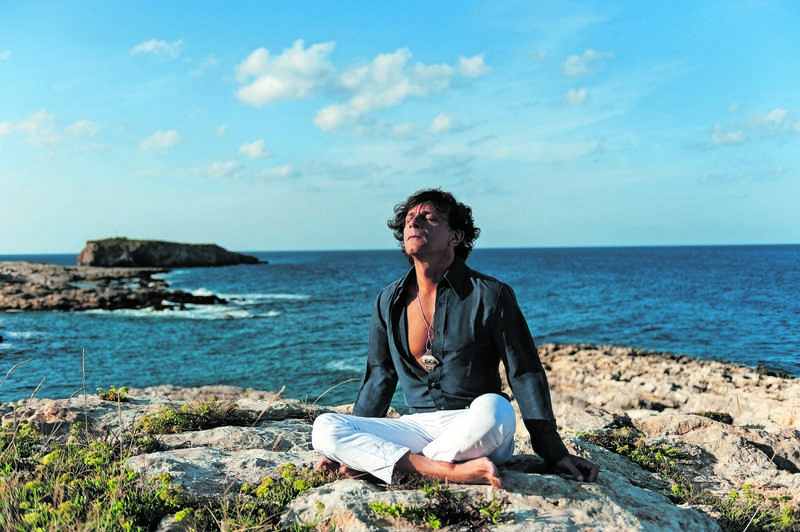
Spiritual: Italian jazz artist Nicola Conte is looking forward to building musical bridges during his tour to South Africa. Photo: Giovanna Sodano
Ten questions, two days. That’s how long this interview took, thanks to my terrible broadband. In the age of lightning-fast internet, sometimes even the simplest tasks can be slowed down by technical glitches.
Such was the case with my recent interview with Nicola Conte, the 60-year-old musician from Bari, in Italy, whose jazz has a healthy spattering of dance music to it.
Despite having to grapple with my terrible broadband, Conte graciously took my calls, eager to discuss his tour to South Africa to celebrate Jazz Appreciation Month, which will culminate in International Jazz Day on 30 April.
“I found out that a lot of people were into what I was into, musically speaking,” he says about 2007, when he first visited South Africa.
“South Africa’s music has a vibe to it I can relate to. There was a very strong and interesting music and artistic scene that was just flourishing.”
That stuck with him and he says he had a clear picture of what the scene would look like in a couple of years. “Compared to 2007, I think now the whole world is starting to take notice of what is happening in South Africa and they are embracing it.
“South Africa is bringing to the world something very unique.”
Umoja
Central to Conte’s latest endeavour is his album Umoja — “unity” in Swahili.
“The concept of unity is one of the seminal concepts of trying to change society. I completely disagree with where society is going for a number of reasons. There are way too many consumerists and materialists and very little freedom for some; there are just way too many people left behind,” he says.
Conte shares that the album was inspired by his interest in African culture, as well as jazz. His exposure to African dialects gave rise to feelings and imaginings that helped create the concepts for the music.
“Some of these concepts are a middle way between political and spiritual concepts and so I wanted a word that is not in English or Italian but a word that comes from a very ancient culture.”
Music can bring meaning to some of the societal issues the world is facing, it can be a way in which we connect to politics and it is also a way we can send out a message, he says.
Because of the times that we are living in, there are some issues that artists cannot avoid and they need to bring them to the public’s attention. It is not an obligation, however, it is a great way to make use of the platform some artists have.
“You can do it in a poetic way, if you do not want to scream and shout,” Conte says.
Jazz in contemporary society
Jazz is no longer “the uncles’ music”.
“I always have the feeling that jazz could really carry the flag of evolution. It moves like tides — high and then low. Now, there is a whole new wave of musicians who seem to have something special and have the capacity to connect with younger people,” he says.
Conte attributes young people’s interest in jazz to the fact it is now connected to other musical genres that are popular among them. More young people are incorporating jazz sounds into their music, as we have seen happen with the amapiano genre in South Africa.
Conte says, at the end of the day, it is about building a bridge between generations and encouraging more young people to be involved in jazz, instead of gatekeeping the genre.
However, maintaining a respect for its history should come with the package.
“Over and above this, we need to have more firm roots.
“If this becomes just another fashion trend or a short-lived infatuation, and is exploited by the music industry, we might have a serious problem. However, if artists hold on to the passion of the music, this might just be greater than we think.”
Conte says he knows he will be warmly received in South Africa but the main purpose of the trip is to listen and learn.
“I just want to get together with other musicians and connect with the audience and other DJ’s and try to give as much as I can to everybody.”
In a world marked by division, Conte’s visit to South Africa embodies the spirit of unity and cultural exchange, reminding us of music’s power to transcend boundaries and connect us all. That’s umoja for you.
 (1).png)
 9 months ago
28
9 months ago
28


















